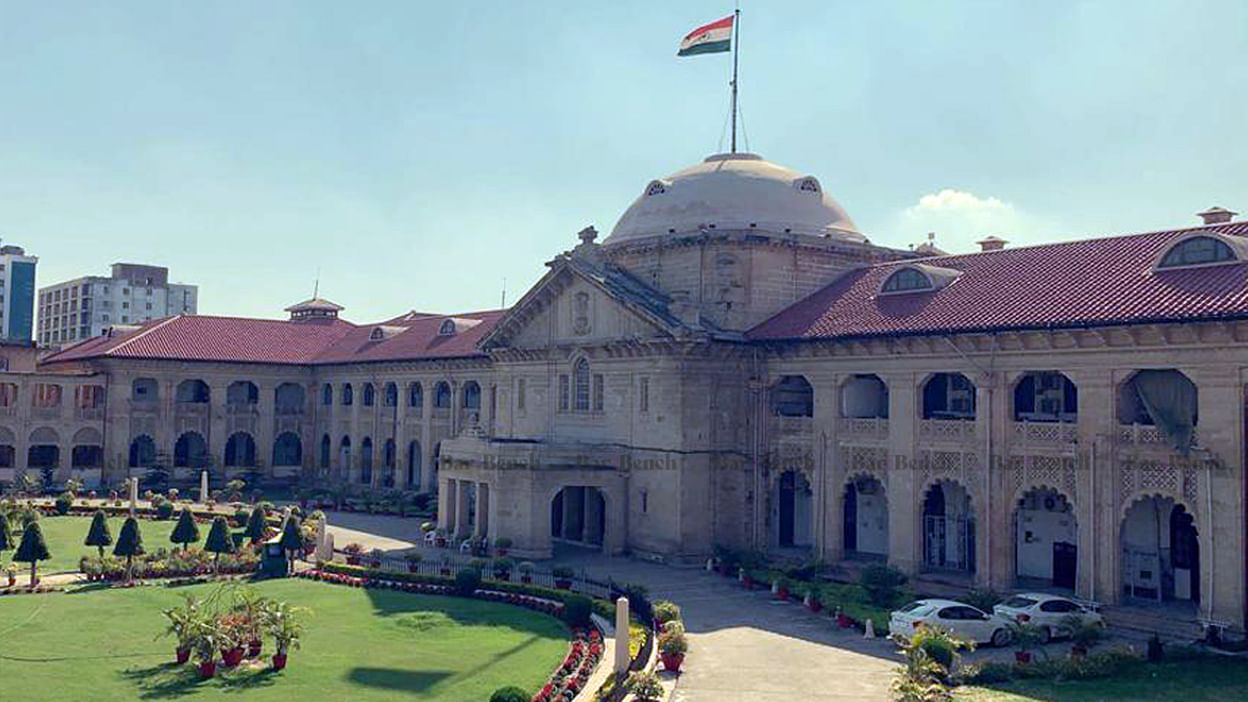Jurisdictional Fact As To Legality Of Detention To Be Examined By Court At The Threshold: Allahabad High Court

The Allahabad High Court recently held that the respondent being biological mother of the minor children, the custody of the children with her cannot, prima facie, be stated to be illegal.
The single bench of Justice Dr. Yogendra Kumar Srivastava while dismissing the petition observed that, “only in exceptional situation, the custody of the minor children may be directed to be taken away from the mother for being given to any other person, including the father of the children, in exercise of writ jurisdiction.”
In the present petition the Petitioner No.3 stating himself to be the father of Petitioner Nos. 1 and 2 (minor children of age about 9 and 7 years respectively), has sought to assert that the two children are in illegal custody of Respondent No.4 (their mother).
“The principal grievance which is sought to be raised by the counsel for the petitioners is with regard to the custody of two minor children and a claim for grant of visitation rights. Proceedings under Section 12 of the Domestic Violence Act and Section 125 Cr.P.C. initiated by the Respondent No.4 are also stated to be pending. An FIR under Sections 498A, 323, 504, 506, 392 IPC and ¾ of Dowry Prohibition Act is stated to have been lodged by the respondent no. 4 which was registered as Case Crime No.399 of 2013 and the criminal case is said to be pending.”- stated the petition.
The pleadings in the petition states that the, “Respondent No.4 (wife) left her matrimonial home on 15.07.2013 on account of a matrimonial discord and a petition under Section 9 of the Hindu Marriage Act registered as Case No. 164 of 2013 (Manoj Kumar Pandey vs. Priya Pandey) was filed before the Family Court which is stated to be pending.”
The learned counsel for the respondent contends that,
“Respondent no.4 left her matrimonial home way back in the year 2013 along with her minor children and is living separately it cannot be said that the minor children are any kind of illegal custody. He further pointed out that a petition for restitution of conjugal rights has been filed by the petitioner no.3 (husband) which is pending and also cases under the Domestic Violence Act, Section 125 Cr.P.C. and also a criminal case registered pursuant to an FIR lodged by the Respondent No.4 (wife) are also pending.”
The bench relied on Mohammad Ikram Hussain v. State of UP, AIR 1964 SC 1625 and Kanu Sanyal v. District Magistrate Darjeeling, (1973) 2 SCC 674, where the Supreme Court observed that, “The writ of Habeas Corpus is a prerogative writ and an extraordinary remedy. It is writ of right and not a writ of course and may be granted only on reasonable ground or probable cause being shown.”
Taking into account the facts and circumstances of the present case, Court referred to Nithya Anand Raghvan v. State (NCT of Delhi) and another, (2017) 8 SCC 454, wherein it was held, “… in an application seeking writ of Habeas Corpus for custody of minor children the principal consideration for the Court is to ascertain whether the custody can be said to be unlawful or illegal and whether the welfare of the children requires that present custody should be changed and the children should be left in care and custody of somebody else. The principle is well settled that in a matter of custody of a child the welfare of the child is of paramount consideration of the Court.”
With respect to the maintainability of Habeas Corpus petition seeking custody of child and adequacy of relief under other Acts, Court considered the findings of Tejaswini Gaud v. Shekhar Jagdish Prasad, (2019) 7 SCC 42; “In child custody matters, the ordinary remedy lies only under the Hindu Minority and Guardianship Act or the Guardians and Wards Act as the case maybe. In cases arising out of the proceedings under the Guardians Wards Act, the jurisdiction of the Court is determined by whether the minor ordinarily resides within the area on which the court exercises such jurisdiction. There are significant differences between the enquiry under the Guardians and Wards Act and the exercise of powers by a writ court which is of summary nature. What is important is the welfare of the Child.”
In a case where facts are disputed and a detailed inquiry is required, the court may decline to exercise its extraordinary jurisdiction and may direct the parties to approach the appropriate court. Here it is undisputed that the respondent no. 4 (wife) along with her minor children, is living separately from the petitioner no. 3 (husband) since the year 2013.
The bench thus dismissed the present petition and held that,
“Proceedings for restitution of conjugal rights under Section 9 of the Hindu Marriage Act initiated on a petition stated to have been filed by the petitioner no.3 (husband), being pending, any claim with regard to ancillary reliefs pertaining to custody or visitation rights may be agitated in the said proceedings and the present petition seeking a writ of habeas corpus is not liable to be entertained in the facts of the case.”
(Case title : Krishnakant Pandey (Corpus) And 2 Others Vs. State Of U.P. And 3 Others, 2021)
